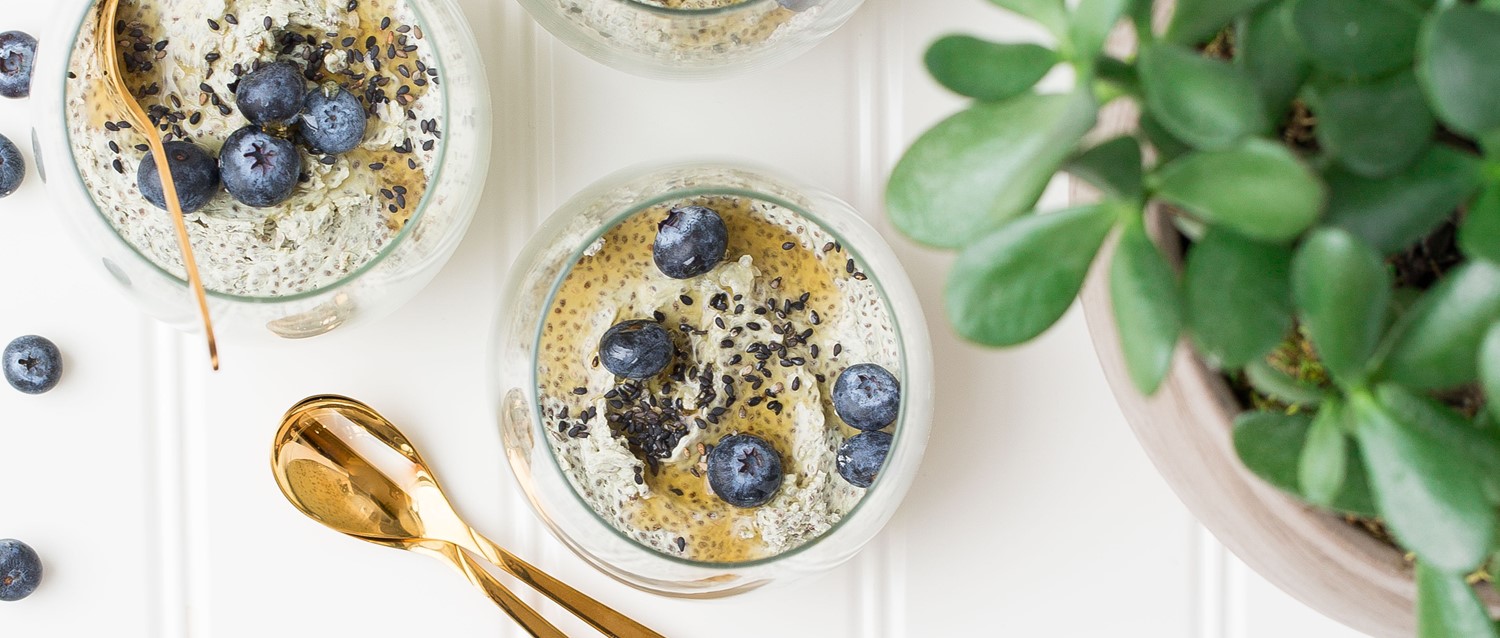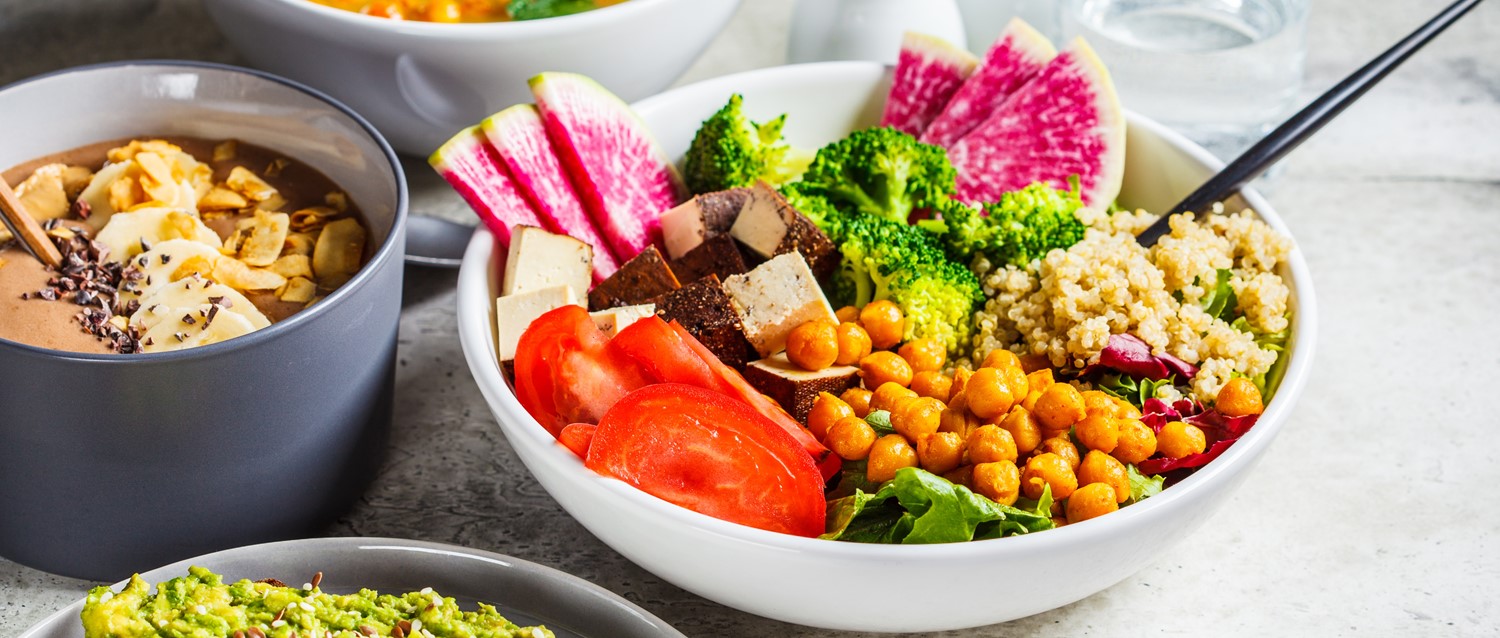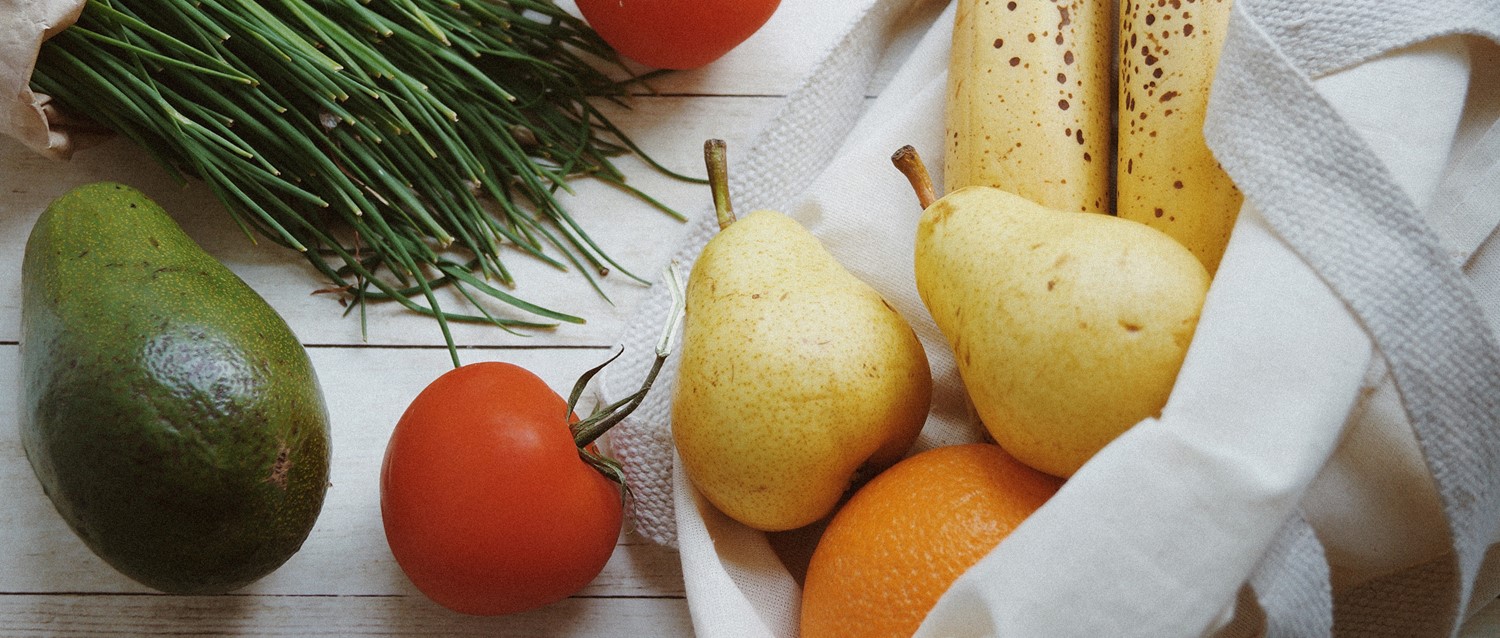
Thinking about going vegan? Here's how to do it healthily
Peer reviewed by Dr Sarah Jarvis MBE, FRCGPLast updated by Natalie HealeyLast updated 3 Jan 2019
Meets Patient’s editorial guidelines
- DownloadDownload
- Share
- Language
- Discussion
Once the preserve of hippies and activists, veganism has now hit the mainstream. Forgoing meat, dairy and eggs is more popular than ever. Even beloved UK bakery chain Greggs has added a vegan sausage roll to its product line.
It's undoubtedly great that people are taking a more ethically-conscious approach to the big shop, but what nutrients could vegetarians and vegans put themselves at risk of losing out on? And how can you approach animal-free consumption in a healthy way? We ask the experts.
In this article:
Video picks for Vegan and vegetarian
Why go vegan?
Generally, people choose to be vegetarian or vegan for ethical reasons or because they want to improve their health. A vegan diet is usually low in saturated fats and rich in fruit and vegetables.
'Meat-free Monday' is a UK campaign, launched by Paul, Mary and Stella McCartney in 2009, to encourage people to reduce their environmental impact and improve their health by having at least one meat-free day each week. More and more people are realising this is far more manageable than they first thought. When you stop thinking a meal needs meat to be complete, vegetarian options start to look a lot more appealing.
Another reason some might want to move to a more plant-based diet is because of the research published in 2015 by the International Agency for Research on Cancer (IARC) that linked eating processed meat to bowel cancer (though read Dr Sarah Jarvis' explainer on the findings and you'll find it's not quite as bleak as you might think).
Nutrients to consider
Back to contentsIf you've decided to give up your daily bacon butty and have vowed to eat more vegetables, that's obviously brilliant. But vegetarians and vegans do have to be careful they're not missing out on nutrients most easily found in meat and dairy sources.
Continue reading below
Meat-free protein sources
Back to contentsProtein is one of them. And it's not just important for bodybuilders. Protein builds and repairs tissues and is a building block of bone, muscles, skin and blood. Your body doesn't store protein, so you need to make sure you're getting enough from your diet. Unfortunately for vegetarians, meat is a rich source of this macronutrient.
"Whilst many plant-based foods contain protein too, they may not contain protein in the correct balance that the body needs. Therefore, vegetarians need to make sure they eat a combination of foods to achieve the right protein balance," reveals Dr Jan Sambrook, a GP who specialises in nutrition.
Luckily, you can also find protein in grains, pulses and dairy products.
"If you eat any two of these, the protein will balance," reveals Sambrook. "This doesn't necessarily need to be within a single meal, as was previously thought. Examples of protein-balanced meals include cereal with milk, or baked potato with beans and cheese, or dal with rice or chapatti."
Your vitamin checklist
Back to contentsA balanced vegetarian or vegan diet generally gives you an improved chance of getting your five-a-day. So when it comes to meeting your RDA of many vitamins, you should, in theory, be well on your way. But if you're not sure, here are the foods to look out for when it comes to specific nutrients:
Vitamin A
Vitamin A is important for good eyesight, healthy skin and your immune system.
"Vitamin A is found in eggs and dairy products. A different form of the vitamin, called beta carotene, is found in dark green leafy vegetables and in coloured fruits and vegetables such as mango, carrots and red peppers. Beta carotene can be converted to vitamin A in the body," explains Sambrook.
Vitamin D
Vitamin D, 'the sunshine vitamin', is really important. It helps your body absorb calcium and is also needed for our muscles to work properly. More recently, vitamin D deficiency has been associated with numerous conditions, from heart disease, to dementia and multiple sclerosis.
"Vitamin D is mainly made in our skin by the action of sunlight. However, it is also found in dairy products, mushrooms (especially if they're grown outdoors) and in fortified cereals and margarine," says Sambrook. "Oily fish and eggs are also among the top dietary sources of vitamin D, so if you're adopting a vegan diet you're less likely to be getting enough."
If you live in the UK, you should be taking a high-quality vitamin D supplement from September-May. We don't get enough sunlight during the autumn and winter months for our skin to make enough of the vitamin. If you're pregnant or breastfeeding, don't get outside much or cover up for religious reasons, you should be taking a supplement all year round.
Vitamin E
Vitamin E helps maintain healthy skin, eyes and your immune system. It can be found in vegetable oils and spreads, nuts and seeds, and also in green leafy vegetables.
Vitamin K
Vitamin K plays a role in blood clotting. Without it, wounds don't heal properly. It can be found in green leafy vegetables and in dairy products.
Vitamin B12
Vitamin B12 is involved in making red blood cells, releasing energy from food and in using folic acid. Vegans struggle to get enough of this nutrient from foods, but there are some animal-free products you can get it from. Love it or hate it, Marmite is one of them.
"Vitamin B12 is almost entirely found in animal products, although it is present in yeast (including yeast extract such as Marmite). It is also added to some products such as breakfast cereals and soya milk. Vegans may need to take a supplement to make sure they don't become deficient," says Sambrook.
Continue reading below
The important minerals
Back to contentsMost of the minerals we need are found in a wide variety of foods and anyone eating a balanced diet can obtain enough of them. However, vegetarians and vegans must make sure they're getting enough iodine, calcium and iron.
Iodine
Iodine is needed to produce the hormone thyroxine. Low levels of this mineral, especially over long periods, can mean your thyroid gland has to work harder - it can even lead to symptoms of an underactive thyroid gland or an enlarged thyroid gland (a goitre). The richest sources of iodine in the average non-vegan diet are dairy products and fish. Soya milk is rarely fortified with iodine. Seaweed is very rich in iodine, but the amounts are very variable and it may contain toxic levels. Therefore, getting your iodine from seaweed is not recommended, and it shouldn't be consumed more than once a week. Instead, consider a supplement of not more than 150 micrograms a day.
During pregnancy, your body's need for iodine increases, but again you should avoid using seaweed to top your levels up. Speak with your GP and check any pregnancy supplements you're taking.
Calcium
Recently, the National Osteoporosis Society (NOS) warned that the popularity of 'clean eating' and other diets where major foods groups are cut out is setting young people up for a future of weak bones.
"Without urgent action being taken to encourage young adults to incorporate all food groups into their diets and avoid particular 'clean eating' regimes, we are facing a future where broken bones will become just the 'norm'," said Susan Lanham-New, a nutrition professor and clinical advisor to the NOS.
Vegan groups were understandably ticked off by this warning, but it's true that most people obtain a lot of the calcium in their diet from dairy products. Without it, it's bad news for bones.
"Calcium is, however, also present in leafy green vegetables, dried figs, almonds, oranges, sesame seeds and some types of bean," reveals Sambrook.
She explains that if non-dairy calcium is eaten with a source of vitamin D (see above), this will help the body absorb it.
Iron
You need iron in order for your blood to carry oxygen around your body. If you don't get enough, you become anaemic. The symptoms include feeling exhausted and breathless.
Whether we like it or not, red meat is the richest dietary source of iron. But there are a few meat-free sources too:
"Vegetarian sources of iron include pulses such as chickpeas and lentils, sprouted seeds and beans, breakfast cereals and bread. Spinach is famous for containing iron, but it is also found in other green leafy vegetables such as broccoli and kale. There is iron in nuts, especially almonds and cashews, and in dried apricots and raisins," explains Sambrook.
She adds that your body can absorb iron from food more easily if it is eaten with vitamin C:
"This can be found in most fresh fruits and vegetables, as well as fruit juice. Some things can reduce the amount of iron the body can absorb. Drinking tea with a meal will prevent the iron being absorbed from the stomach."
Aside from vegetarians and vegans, people who need to be more careful about getting enough iron include women who have heavy periods and those who are pregnant.
Not so fishy
Back to contentsDo you still have dreaded memories of a parent forcing a spoonful of cod liver oil upon you? There was method in that madness. Omega-3 fatty acids are thought to reduce the risk of heart disease and to boost brain development. But they are most commonly found in oily fish.
It's not just vegetarians who are missing out though.
According to nutritionist Dr Carrie Ruxton: "While the government has advised us all to eat two portions of fish a week, including one of oily fish, the fact is most of us just don't get enough. Nutrition surveys show that two thirds of us rarely have oily fish and average intakes are half the recommended portion of 140 g."
Sambrook explains that vegetarians and vegans can obtain omega-3 from flaxseeds and flaxseed oil, rapeseed oil, soya oil and soy-based foods. Vegetarian supplements (made from algae rather than fish) are an option too.
Knowledge is power
Back to contentsHopefully, this is food for thought whether you've been vegetarian or vegan for yonks or if you're considering taking the flesh-free plunge. There are many benefits to eating less meat but to go vegan healthily, you need to come armed with knowledge.
Patient picks for Vegan and vegetarian

Diet and nutrition
What are the health benefits of a vegan diet?
Veganism is on the rise, and one survey conducted in 2016 found that the number of vegans rose a whopping 360% in the previous decade. Plant-based diets also gained popularity worldwide last year, as awareness was brought to the connections between disease and meat consumption. Since 2020 there has been a 40% increase in vegans in Britain, with the estimated total being 1.5 million people.
by Emily Jane Bashforth

Diet and nutrition
What happens to your body when you go vegan?
More of us than ever are going vegan. But how does a plant-based diet actually affect the body and what are the pitfalls to look out for?
by Abi Millar
Continue reading below
Article history
The information on this page is peer reviewed by qualified clinicians.
3 Jan 2019 | Latest version

Ask, share, connect.
Browse discussions, ask questions, and share experiences across hundreds of health topics.

Feeling unwell?
Assess your symptoms online for free
Sign up to the Patient newsletter
Your weekly dose of clear, trustworthy health advice - written to help you feel informed, confident and in control.
By subscribing you accept our Privacy Policy. You can unsubscribe at any time. We never sell your data.